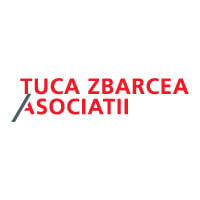

Legal director and co-founder | TAKT Recruitment



Rozana Cozma
Legal director and co-founder | TAKT Recruitment
How do you approach managing legal aspects during periods of instability or crises, and how does your legal strategy align with the broader business strategy to ensure the organisation’s resilience?
Managing the legal aspects of a recruitment company during times of instability or crisis, particularly one focused on bringing Asian workers to Romania, requires a proactive, structured, and flexible approach. Our strategy emphasises a mix of risk assessment, compliance with evolving regulations, and maintaining alignment between the legal and business strategies to ensure the organisation’s resilience. At the core of managing legal aspects in uncertain times is the ability to foresee potential challenges. This involves working closely with the HR departments of clients and operations teams to anticipate risks associated with international recruitment, including potential delays in worker mobility, visa issues, or changes in immigration policies from both source and destination countries. By conducting continuous assessments of our contracts, particularly with Romanian companies and non-EU workers, we ensure that our legal framework can handle shifts in labour demand, new regulatory requirements, or operational disruptions. This could involve renegotiating contracts to account for unforeseen delays or adding protective clauses to limit liability during times of crisis.
One of the most critical aspects of managing legal risks in the recruitment industry is maintaining strict compliance with the laws governing labour and immigration in both Romania and the workers’ home countries. During crises, laws and regulations often change rapidly, so I prioritise regular updates on new legislation and government policies that may impact recruitment activities. By maintaining strong relationships with government authorities, embassies, and consulates, I ensure that our company remains informed and can react swiftly to any changes.
For instance, during the COVID-19 pandemic, we had to adapt our operations quickly to comply with new health and safety regulations, while also ensuring that work permits and visas for foreign workers were processed without undue delays. In crisis periods, contractual obligations can become difficult or impossible to meet. My approach is to build flexibility into contracts from the outset. This may include incorporating force majeure clauses, renegotiation provisions, or termination clauses that allow for temporary suspension or renegotiation of terms in the event of major disruptions. Flexibility helps protect the business from legal disputes while maintaining strong relationships with both clients and workers. Aligning the legal strategy with the business strategy is fundamental to ensuring organisational resilience. My approach focuses on safeguarding the company’s continuity and adaptability during crises, ensuring that we can withstand disruption while continuing to meet client needs. To ensure resilience, the legal strategy is designed to anticipate and address risks that could affect our ability to recruit workers and meet the needs of Romanian companies. Whether it’s addressing worker shortages due to travel restrictions or adapting to new regulations on work permits, the legal framework must be flexible enough to allow us to continue our core operations. We regularly review contracts and procedures to ensure they align with the broader business objective of uninterrupted and timely service delivery.
In the recruitment industry, reputation is everything. By ensuring full compliance with labour and immigration laws, both in Romania and in the home countries of the foreign workers we recruit, we protect the company’s reputation. This compliance builds trust with governmental authorities, clients, and workers, which is crucial for long-term resilience, especially when facing external disruptions. Agility is key to resilience. We ensure our legal strategies are adaptable to rapidly changing environments. Whether it’s adjusting contract terms, renegotiating with clients, or responding to a shift in immigration policy, we make sure the legal team is prepared to respond quickly to support the business.
In conclusion, this flexible approach ensures that the legal strategy remains dynamic, fully integrated with business goals, and capable of supporting the company through both short-term crises and long-term uncertainty.
In your opinion, what are the main trends that are salient in your country currently (these can be legal, political, economy or business-based)?
In 2024, Romania is experiencing significant labour shortages across various sectors, which is driving a notable trend of recruiting skilled personnel from Asian countries. This development is not only reshaping the labour market but also influencing broader legal, economic, and social trends in the country.
One of the most pressing issues in Romania’s economy is the acute shortage of workers, particularly in industries like construction, manufacturing, agriculture, and hospitality. According to recent estimates, Romania is facing a deficit of more than 500,000 workers in key sectors, a gap that is expected to grow as the population ages and migration continues. Many young Romanians have sought employment opportunities abroad in Western Europe, contributing to this domestic workforce shortage. In response, Romanian companies have increasingly turned to Asian countries, such as India, Nepal, and Sri Lanka, to fill these vacancies with skilled and semi-skilled workers.
This trend has been supported by the Romanian government’s policies, which have increased the number of work permits for non-EU nationals. The contingent for 2024 is set at 100,000 individuals. For reference, in 2021, the contingent was initially set at 25,000 foreign work permits, but the cap was gradually raised to accommodate the growing demand for foreign labour, particularly from Asian countries. The recruitment of workers from these regions has become a well-established practice, helping to address labour shortages while enabling Romanian businesses to remain competitive and meet production demands.
As the recruitment of foreign labour expands, Romania is seeing corresponding legal adjustments. Immigration laws are evolving to streamline the process of bringing in foreign workers, with simplified procedures for obtaining work permits and residency permits. The influx of foreign workers is reshaping Romania’s business landscape. Many companies have found that hiring workers from Asia not only fills their workforce gaps but also brings benefits in terms of skills, dedication, and reliability. The trend is particularly noticeable in industries where labour-intensive work is required, such as construction and manufacturing. Romanian businesses are adapting to this new dynamic by developing more robust human resource practices to integrate foreign workers. This includes providing language training, cultural orientation programmes, and improved accommodation to ensure that workers can adapt to their new environment and contribute effectively. Despite the challenges that come with a growing foreign workforce, Romanian society has generally been positive about the presence of Asian workers. Communities are becoming more diverse, and the integration of foreign workers has been smooth in most areas, especially in the larger cities. The willingness of the Romanian population to welcome foreigners has helped create a supportive environment for foreign workers, facilitating their social integration.
In conclusion, the labour shortage in Romania has accelerated the recruitment of skilled workers from Asian countries, leading to legal, economic, and social shifts. This trend is likely to continue as Romania navigates its demographic challenges and as businesses seek to remain competitive in a globalised economy.